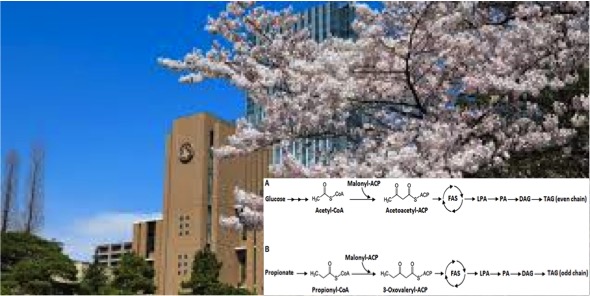A recent study by Tohoku University researchers has shed light on the association between dairy product consumption and odd-number carbon chain fatty acids (odd-FA) within the Japanese population, a correlation previously confirmed in Europe and Oceania but understudied in Asian countries.
Details of their research were published in the journal Metabolomics on March 5, 2024.
Odd-FA are fewer in numbers compared to fatty acids with even numbers of carbon atoms. A major source of odd-FA for humans is through dairy, mainly synthesized by microorganisms in the stomachs of ruminants.
After combing through databases that explored the correlations between food consumption habits and lipids, we honed in on the association between dairy product consumption and odd-FA. While previous studies extensively explored this association in Europe and Oceania, very few have looked into Asian countries.”
Kengo Kinoshita, co-author of the study, and professor at Tohoku University’s Tohoku Medical Megabank Organization
Kinoshita and his colleagues collected plasma samples and food frequency questionnaires from over 4,000 Miyagi-prefecture residents, to examine daily food consumption and its impact on 439 plasma lipid species.
The study also examined how consuming confectioneries, such as cookies, chocolate, cakes, and wagashi (Japanese-style snacks), reduces omega-3 fatty acids. Competition between omega-3 and omega-6 fatty acids may be the cause, as confectionery and lipids thought to contain omega-6 fatty acids were positively correlated. Given the well-known benefits of omega-3 fatty acids in promoting healthy brain functions, reducing mortality and lowering the risk of cardiovascular diseases, the findings suggest caution should be taken in the confectionary consumption of omega 6 fatty acid.
Addressing the next steps for future studies, the study suggests a key role for odd-FA-containing sphingomyelin (SM) in dietary odd-FA metabolism, offering valuable insights for further research in this area.
“While our findings primarily focus on diet-lipid associations within the Japanese population, we believe that the identification of sphingomyelin (SM) as an important molecule in odd-FA metabolism holds broader significance beyond ethnicity-specific contexts,” commented Kinoshita.



























